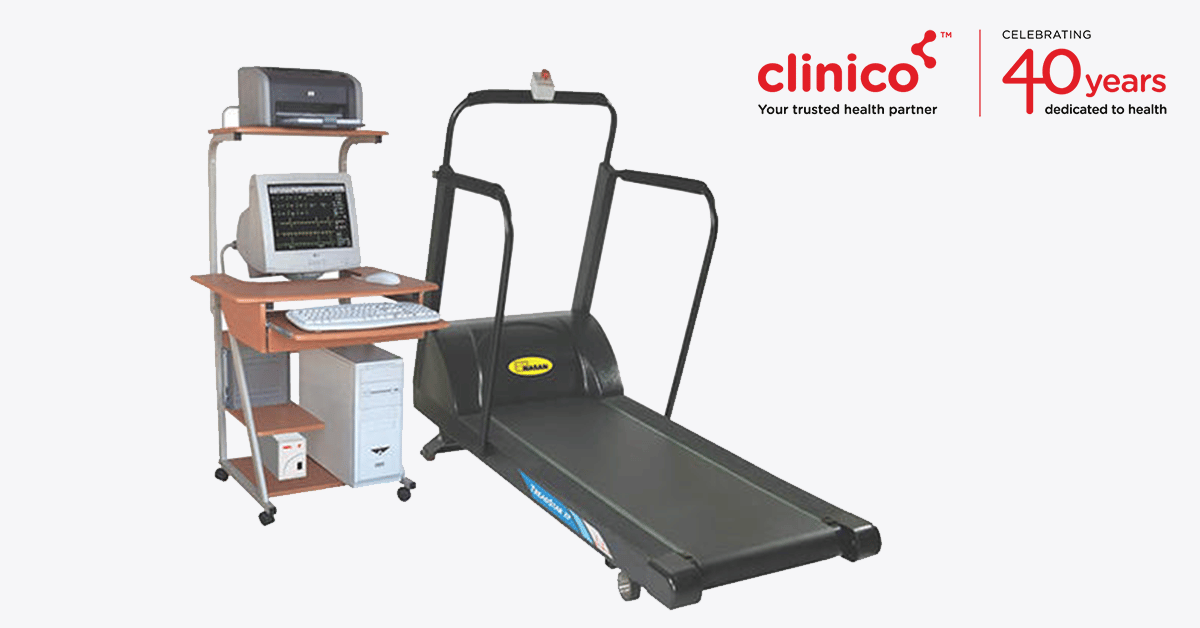
Have you been prescribed a stress test? Want to get a clear idea of the test procedure, prior preparation and signs you need a stress test?
Go through this insightful blog for an all-inclusive overview of the stress test.
What is a Stress Test?
Also known as exercise stress test, the stress test is conducted to assess heart function & blood flow in a patient with symptoms of heart disease. This test helps find out whether the heart is working in a normal manner when functioning at its maximum level.
It generally comprises jogging on a treadmill or pedalling a stationary bike while being hooked up to an ECG monitor that helps assess the heart’s activity during exercise. However, some doctors may prescribe medications that mimic the effects of exercise instead of subjecting the patient to actual exercise.
Why Stress Test is Done?
There can be various reasons behind a doctor recommending a stress test.
Some of the common reasons include:
- Monitoring the rhythm of the heart
- Evaluating the blood flow in a patient
- Diagnosing a heart issue such as coronary artery disease
- Treating a cardiovascular problem
- Monitoring the effects of ongoing heart treatment
- Creating a suitable fitness plan
Signs when you need to get a Stress Test Done
Signs & symptoms of heart disease that indicate the requirement of a stress test are:
- Discomfort or pain near the heart area
- Fast or uneven heartbeat
- Shortness of breath
- Feeling of dizziness or lightheadedness
How Stress Test is Done?
The following is the general procedure of the exercise stress test:
- Your resting heart rate & blood pressure is measured by the lab assistant or nurse
- Any hair over the chest region is shaved in case of males
- Tiny electrodes (sticky dis are attached to your arms & chest
- You are asked to start walking on a treadmill or pedalling a stationary bike at a slow pace
- The pace is gradually increased and after regular intervals, you are enquired regarding experiencing any feeling of uneasiness
- As the speed goes up, your heart is made to work at its hardest
- The lab assistant notes down the readings of your heart function
- The test typically concludes in around 10-15 minutes
- However, in case you feel chest discomfort or experience any severe heart symptoms during the test, then the lab assistant may end the test immediately
- Once the test comes to a conclusion, the lab assistant monitors your heart rate, blood pressure, and any symptoms for a few minutes
How to prepare for a Stress Test?
Preparation for the stress test commonly includes:
- Avoiding food consumption a few hours before the test
- Not consuming caffeine-containing products for 1 whole day prior to the test
- Staying away from cigarette smoking & consumption of tobacco products
- Informing the doctor about any ongoing medications as they may interfere with the stress test results
- Staying relaxed and wearing comfortable shoes
Conclusion
The stress test offers highly insightful information about heart function that may help detect heart issues and safeguard your present & future cardiovascular health.
If you or anyone in your circle has been prescribed a stress test, then Clinico is the best diagnostic centre to visit! We are among the highly rated diagnostic centre and NABL accredited pathology labs in Mulund, Thane, Bhandup & Airoli.
Contact us 24×7 on 9504555555 to schedule an appointment at your nearest Clinico centre.
